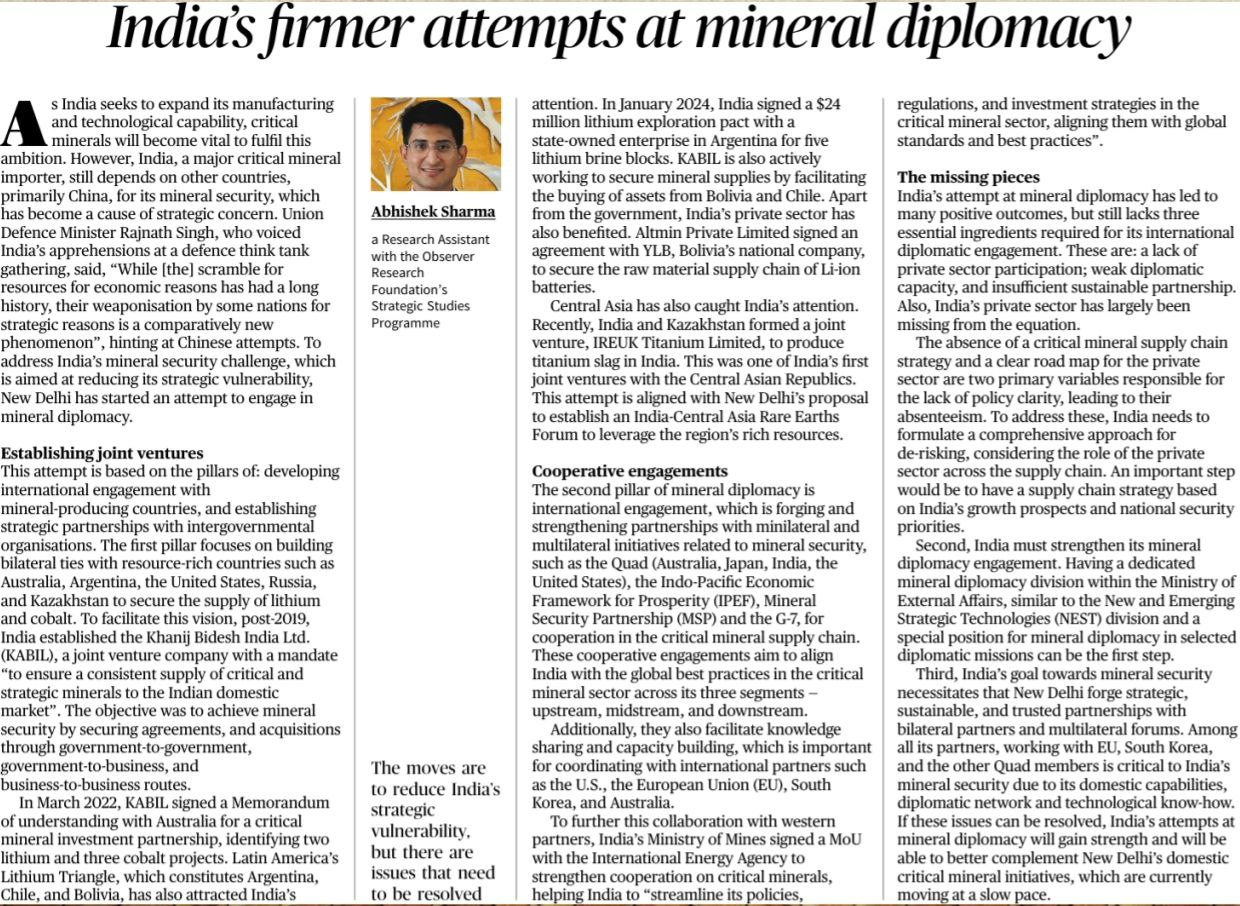India's Strategic Push for Mineral Diplomacy
Introduction
India’s ambition to expand its manufacturing and technological capabilities hinges on access to critical minerals like lithium, cobalt, and rare earth elements. Given its dependency on imports, particularly from China, securing mineral resources has become a matter of national security and economic necessity. To address this, India has embarked on mineral diplomacy, focusing on joint ventures, cooperative partnerships, and international engagement.
- The Need for Mineral Diplomacy
- Strategic Importance: Critical minerals are essential for modern technologies, including electric vehicles, renewable energy, and defense equipment.
- Current Challenge:
- Overreliance on imports, particularly from China.
- Rising global competition and “weaponization” of critical minerals by certain nations.
- Key Initiatives in Mineral Diplomacy
- Establishing Joint Ventures
- Focus: Building bilateral ties with mineral-rich countries to ensure steady supply.
- Key Partnerships:
- Australia, Argentina, U.S., Russia, and Kazakhstan for lithium and cobalt supply.
- KABIL (Khanij Bidesh India Ltd): A joint venture to acquire and secure critical minerals for India.
- Recent Developments:
- Argentina: $24 million lithium exploration pact (Jan 2024).
- Bolivia and Chile: Facilitating mineral supply chain.
- Central Asia: India-Kazakhstan joint venture for titanium production.
- Cooperative Engagements
- Focus: Strengthening partnerships through multilateral frameworks:
- Quad (India, U.S., Japan, Australia)
- Indo-Pacific Economic Framework (IPEF)
- Mineral Security Partnership (MSP)
- G7
- Purpose: Align with global standards, de-risk supply chains, and share technological expertise.
- Strengthening Knowledge Sharing
- MoU with the European Union and Western partners to strengthen cooperation on critical minerals.
- Challenges and Gaps
- Lack of Private Sector Participation:
- India’s private players are largely absent from mineral diplomacy.
- Need for clear policy frameworks to involve private sector players.
- Weak Diplomatic Capacity:
- Lack of a dedicated mineral diplomacy division in India’s Ministry of External Affairs.
- Unclear Supply Chain Strategy:
- Absence of a long-term roadmap to de-risk the critical mineral supply chain.
Conclusion
India’s mineral diplomacy reflects its strategic vision to secure critical minerals, essential for technological advancement and national security. While significant steps like joint ventures and international collaborations have been taken, gaps remain, particularly in private sector involvement and institutional capacity. Addressing these challenges will position India as a key player in the global mineral supply chain, ensuring its economic resilience and growth.
Mains Practice Question |
Q: “India’s mineral diplomacy is vital for securing its strategic and economic interests. Critically analyze the steps taken by India in this direction and suggest measures to address the challenges.” |


